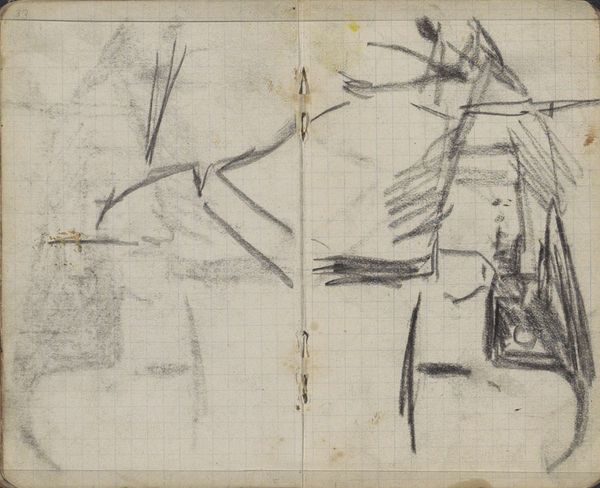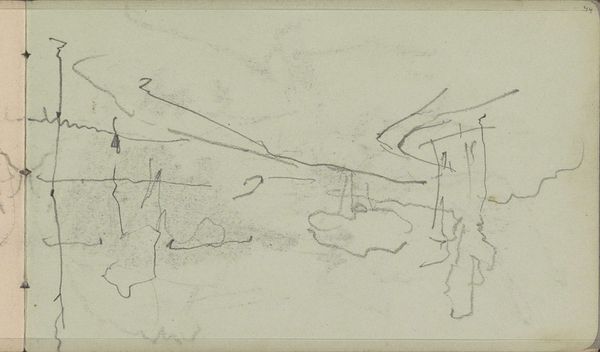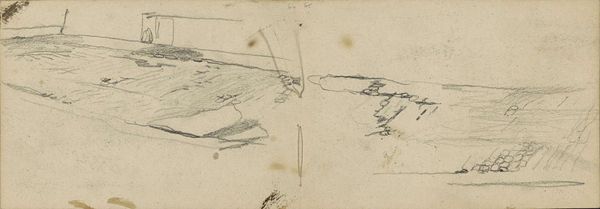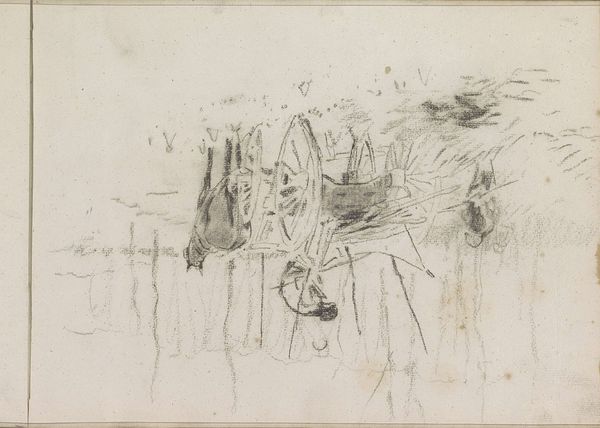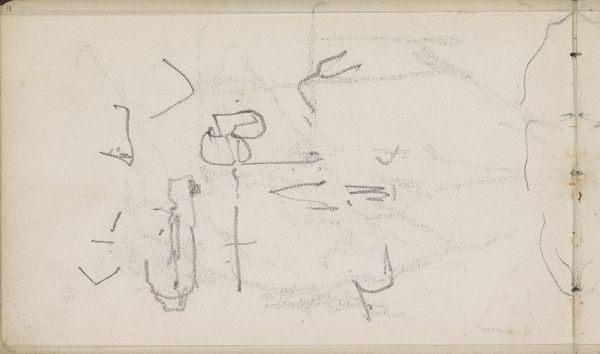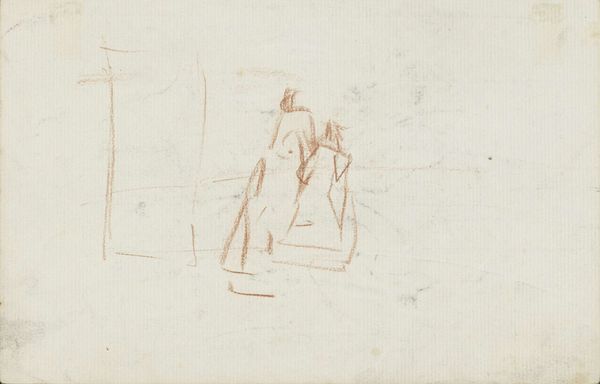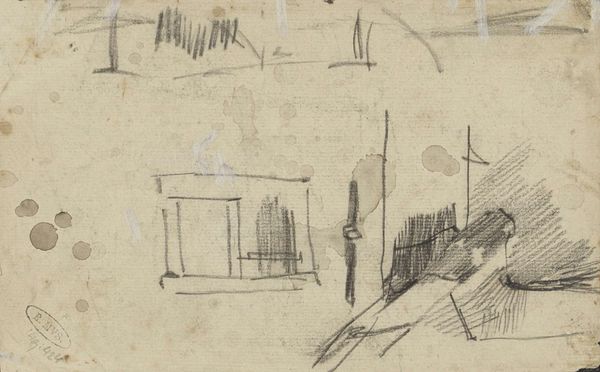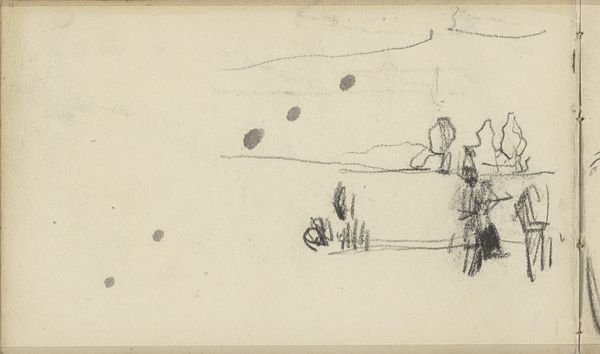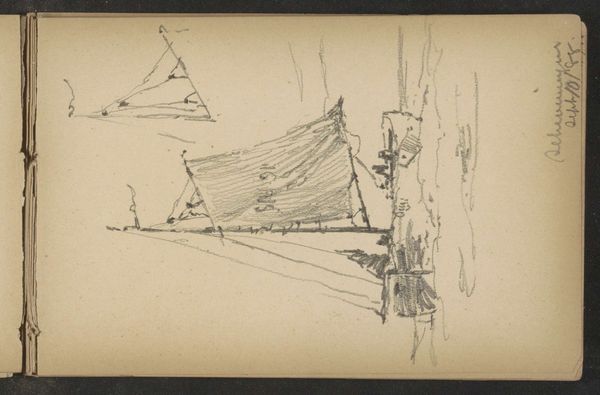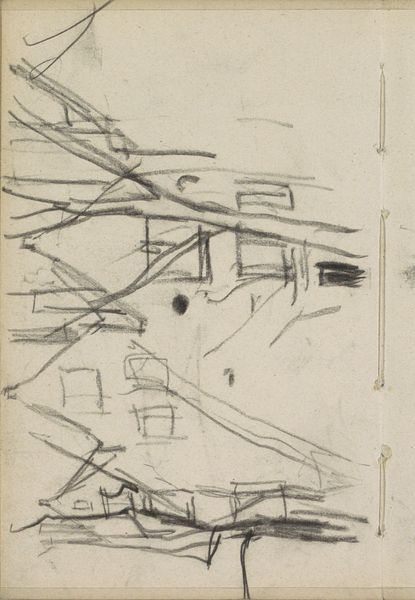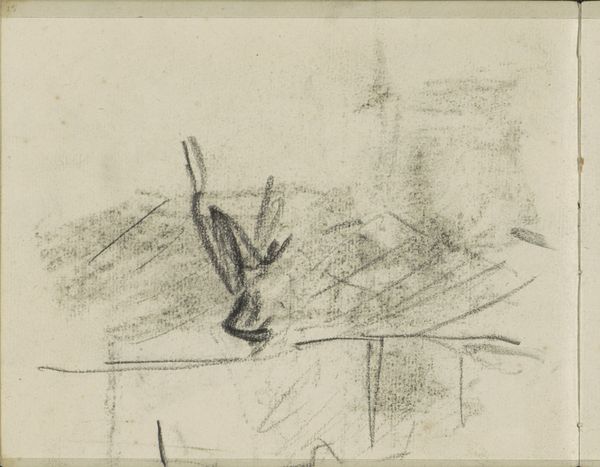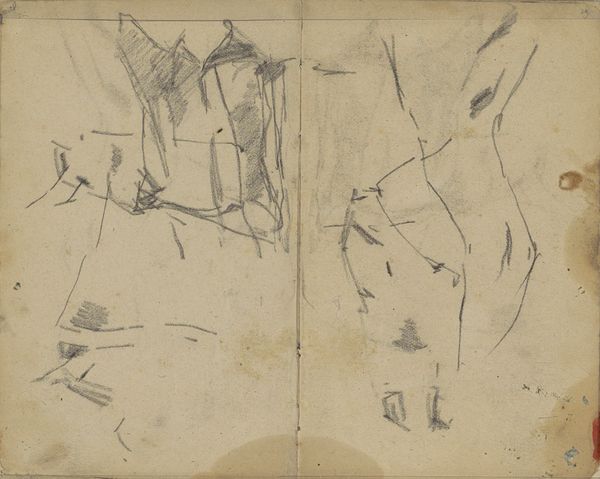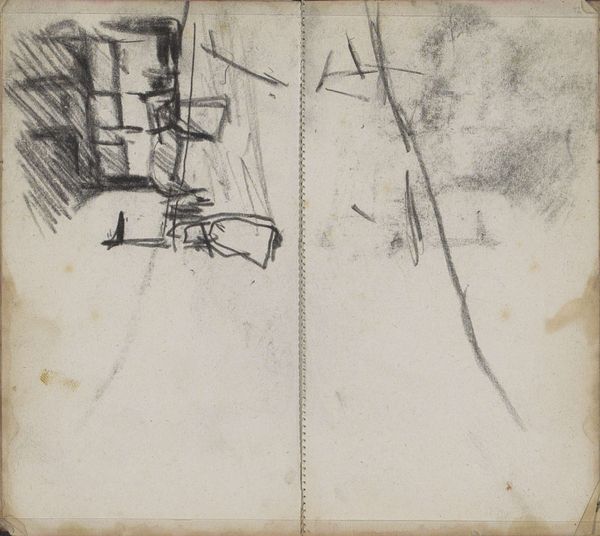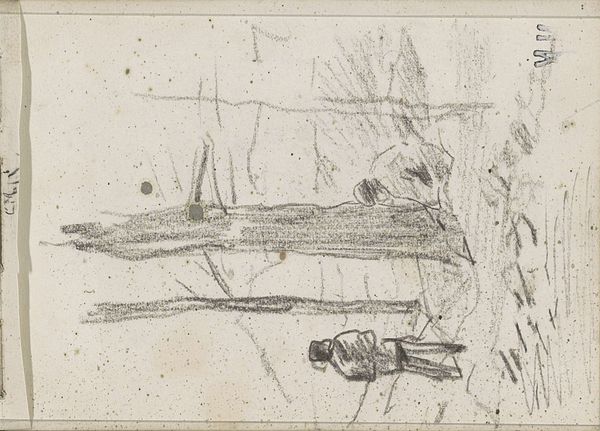
Stadsgezicht met figuren, mogelijk te Amsterdam c. 1896 - 1903
0:00
0:00
georgehendrikbreitner
Rijksmuseum
Dimensions: height 154 mm, width 234 mm
Copyright: Rijks Museum: Open Domain
George Hendrik Breitner sketched this cityscape, possibly Amsterdam, with pencil. Note how the recurring vertical lines—trees, posts, and building facades—create a sense of rhythmic repetition, almost like a visual echo. These structural elements share an uncanny resemblance to the 'axis mundi,' or world axis, that appears in various cultures, connecting the terrestrial and the celestial realms. Think of the ancient Egyptian obelisks, or the maypole erected during springtime celebrations. Now, consider how the rigid geometry softens, yielding to organic forms. A figure, perhaps draped in fabric, leans, adding to the sketch a touch of vulnerability. Similarly, the 'draped figure' motif, a symbol of mourning, appears in ancient Roman sculptures and Renaissance paintings. In this context, the sketch becomes more than just a cityscape. It's a stage where subconscious emotional dramas unfold, reminding us that even in the most modern settings, the ghosts of our collective past are present.
Comments
No comments
Be the first to comment and join the conversation on the ultimate creative platform.
